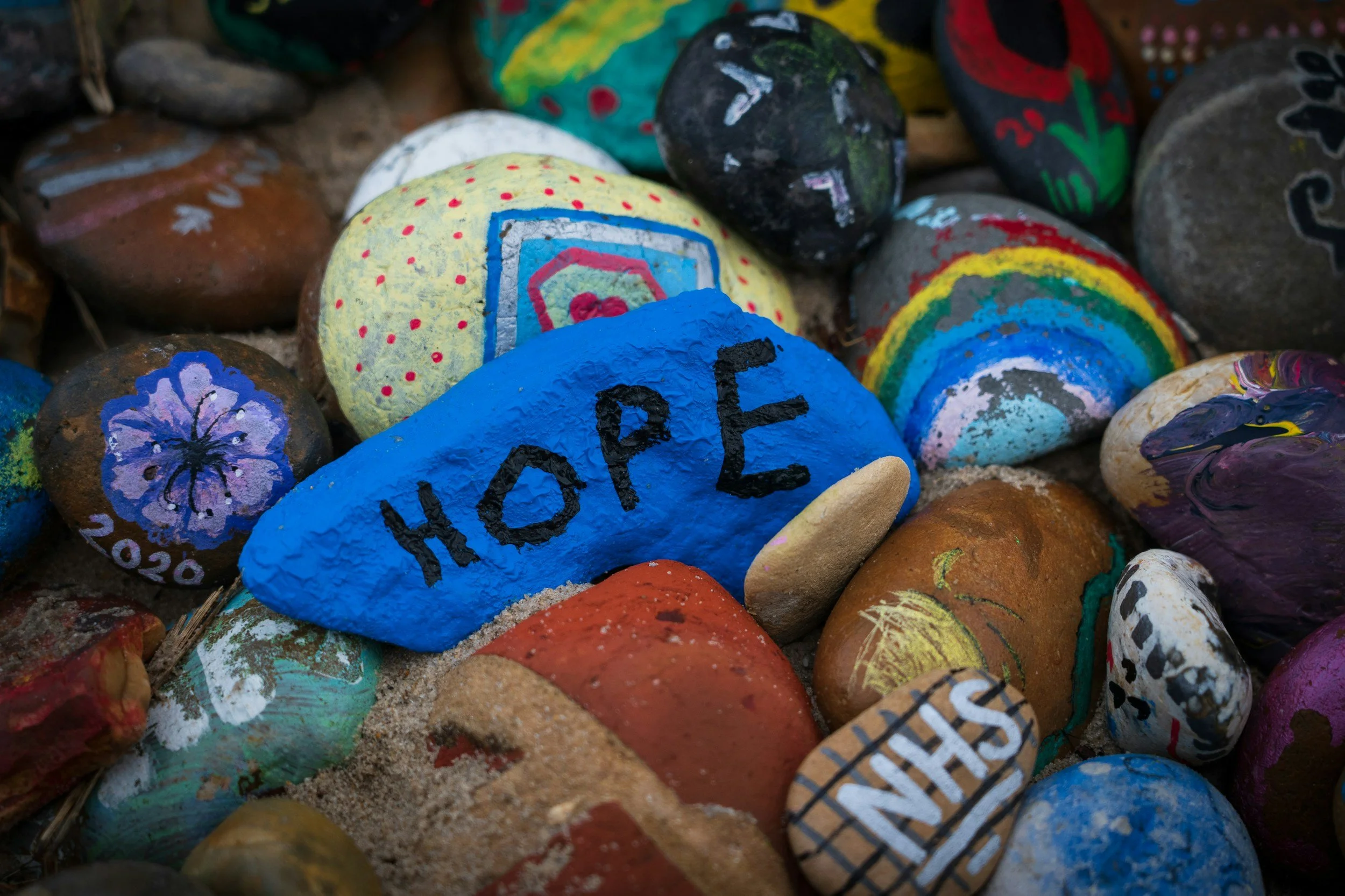When we think about improving our health, the focus tends to be on physical health - building strength, or simply feeling better in daily life. However, improving our emotional and mental well-being is just as important—if not more so—especially for those navigating grief and loss. Learning a practice that can profoundly impact your emotional health - strengthening your inner dialogue - can help build mental resilience by shifting how we talk to ourselves.
Read MoreThe transition into a new year often comes with mixed emotions. For many, it feels like a time for fresh beginnings, resolutions, and forward momentum. But for those navigating grief, the shift can also carry a deep sense of sadness, apprehension, and even guilt.
As we step into this new chapter, it’s important to approach the new year with self-compassion and intentionality. In this post, I’ll share reflections on the metaphor of a walking path, practical tools for navigating grief, and truths to carry with you as you journey forward.
Read MoreAs the holiday season approaches, it can feel like an emotional rollercoaster. For those of us navigating grief or going through challenging times, the holidays can amplify our feelings—both of joy and sorrow. To help ease some of this burden, I’ve created a new series called Healing Through the Holidays, where we’ll explore different self-care tools for this season. And we’re starting with a theme that is at the heart of moving through tough times: hope.
Read MoreFood is a connector in so many ways. It links us to memories, to family traditions, and even to people we’ve lost. In the years after my son Ian died, I struggled to make certain foods that he loved.
Read MoreAs the seasons change, especially during the transition into fall, we are reminded of nature’s cycle of letting go. The fall season serves as a perfect metaphor for releasing what no longer serves us—whether that’s stress, past expectations, or deep grief. This is especially true for those navigating grief, not just for the loss of a person but also for unmet dreams, health struggles, or personal changes.
Read MoreIn life, we all experience moments of emotional overwhelm. These are the times when everything feels heavy, and it seems impossible to escape the whirlwind of negative thoughts. For me, this happened recently when I found myself stuck in a cycle of rumination, sadness, and irritation for almost a week.
Read MoreGrief is an unwelcome visitor, and when it arrives at your doorstep, life as you know it changes in unimaginable ways. My name is Susan Andersen, and I am a suicide loss survivor.
Read MoreAnxiety can be a tough emotion to navigate, especially when you're already dealing with the overwhelming feelings that come with grief. Anxiety is characterized by feelings of tension, worried thoughts, and physical changes like increased blood pressure. When you're grieving, anxiety often amplifies.
Read MoreWhile we each navigate our grief journey differently, finding tools and practices that provide comfort and healing can be essential. For me, yoga has been one of those tools, and I want to share with you 10 proven ways that yoga can help you in your grief journey.
Read MoreGrief is a complex and often overwhelming emotion. While there's no one-size-fits-all approach to healing, many find solace in expressing their feelings through writing. Journaling can be a powerful tool for processing emotions, gaining perspective, and honoring the memory of a loved one.
Read MoreGrief is a complex emotion often intertwined with feelings of guilt. Whether you survived when others didn’t, witnessed someone’s suffering, or believe you could have done more, these feelings can be overwhelming. It’s essential to understand that guilt is a normal, yet often unhelpful, response to loss.
Read MoreFeeling overwhelmed by grief? Discover seven powerful techniques to release grief pain, including practical, actionable steps to help you navigate the complexities of loss.
Read MoreEver wondered what grief would look like if you could take it out of your body? Let’s explore the concept of the "Grief Blob," a constantly shifting shape that embodies the many emotions we experience after loss. Learn how the Grief Blob can change in intensity and texture, and how acknowledging the emotions within it can help us move through our grief journey.
Read MoreMy experience as a yoga teacher (and one who has grieved a lot of loss) has shown me how grief impacts us physically, cognitively, emotionally, and spiritually. Over the past few years I’ve been interested to learn more about the clinical study of grief and how it validates (or doesn’t) what I’ve experienced.
Read MoreIn the spirit of independence and the rights that our forefathers enshrined in the Constitution and the Bill of Rights, I want to introduce a "Bill of Rights for Grievers." This is a guide to remind you that it's okay to grieve in your own way and at your own pace.
Read MoreGrief is a universal experience, yet it's often shrouded in misconceptions and unrealistic expectations. Maybe you have pondered: "Is there a proper or correct way to grieve?" This question often arises from cultural, societal, and personal pressures that shape our perceptions of grief.
Read MoreGrief is a complex and deeply personal experience, and its hardest aspects can vary widely depending on individual circumstances and the nature of the loss. Explore some of the different challenges people face in their grief journeys and consider ways to navigate these difficult emotions.
Read MoreGrieving is a profound and deeply personal journey. Throughout my own experience with loss, I've encountered numerous lessons, but five particular insights stand out. These lessons have shaped my understanding of grief and provided guidance during the most challenging times.
Read MoreGrief is a complex experience that affects us emotionally and physically. Recognizing the physical symptoms of grief and using techniques to alleviate them can significantly aid in the healing process. Whether through breath work, gentle movements, walking in nature, or expressing your feelings, there are many ways to address the physical manifestations of grief.
Read MoreFirst, I’d like to tell you how sorry I am for the loss of your child. I too lost my child. I know the screaming pain, the unbearable days, the overwhelming struggle, wanting to die too. But I also know the little joys, smiles, and desire to live.
Read More


















